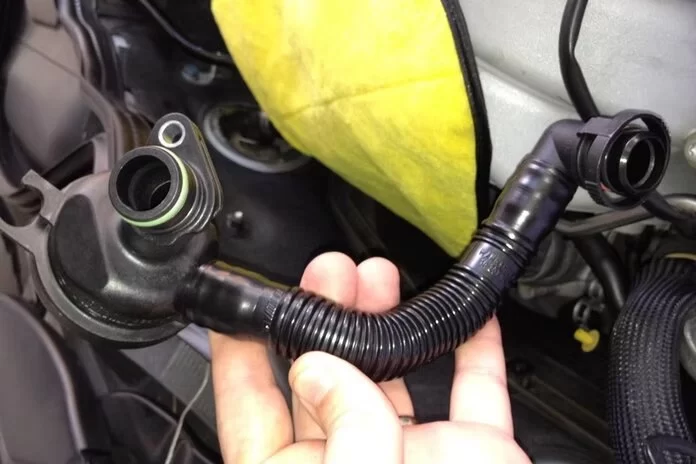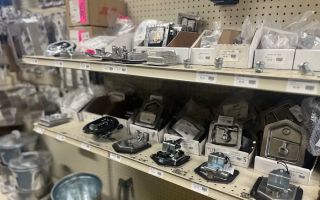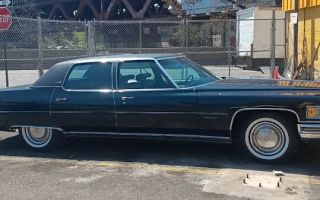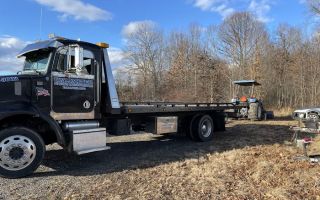- what-is-a-pcv-valve-hose
- how-the-pcv-valve-hose-functions-in-your-engine
- signs-your-pcv-valve-hose-needs-attention
- real-driver-experiences-with-failed-pcv-systems
- tips-for-inspection-replacement-and-maintenance
- get-support-and-parts-from-rescue-towing
1. What Is a PCV Valve Hose?
The PCV (Positive Crankcase Ventilation) valve hose is a crucial but often overlooked component of your car’s engine system. It connects the crankcase to the intake manifold, allowing gases that escape from the engine’s combustion chamber to be redirected and burned again. This reduces emissions, prevents engine sludge, and helps your vehicle run efficiently. Though it may seem like a small rubber hose, its function is far from minor—it’s a quiet workhorse in your car’s health and performance.

Pick Your Part - Help Yourself
1232 Blinn Ave, Wilmington, CA 90744, USA
2. How the PCV Valve Hose Functions in Your Engine
2.1 Venting and Reuse of Blow-By Gases
During combustion, some gases leak past the piston rings into the crankcase—this is called blow-by. Left unvented, blow-by can cause pressure build-up, oil contamination, and damage. The PCV valve hose directs these gases into the intake manifold, where they're re-burned. It's a simple, elegant solution that supports both performance and environmental goals.

Pick Your Part - Greer
13054 E Wade Hampton Blvd, Greer, SC 29651, USA
2.2 Regulating Engine Pressure
The PCV system also helps maintain proper pressure inside the engine. If pressure gets too high due to a clogged hose or faulty valve, it can lead to oil leaks, poor fuel economy, and rough idling. By venting gases correctly, the PCV hose keeps your engine breathing evenly—literally.
3. Signs Your PCV Valve Hose Needs Attention
3.1 Engine Misfire or Rough Idling
If your engine hesitates, idles roughly, or even misfires, a faulty PCV valve hose could be the culprit. A crack or blockage in the hose disrupts airflow balance, making it harder for the engine to maintain a steady rhythm.
3.2 Excessive Oil Consumption or Leaks
When the PCV hose fails to regulate pressure properly, oil can escape through seals and gaskets. You might notice oil puddles under your car or find yourself topping up the oil more often than usual.
3.3 Check Engine Light
A failing PCV valve hose can trigger your check engine light. While that warning can mean many things, a diagnostic scan can quickly confirm if the PCV system is to blame.
4. Real Driver Experiences with Failed PCV Systems
In early 2024, a Colorado-based car enthusiast posted a YouTube video detailing his surprise when a $12 cracked PCV hose was behind his Audi A4’s persistent oil leaks and poor fuel efficiency. He had spent months and hundreds of dollars chasing other potential causes before discovering the issue. Once replaced, he reported smoother acceleration, improved mileage, and a completely clean garage floor.
Similarly, one Minnesota rideshare driver noticed his Hyundai was idling rough and burning oil faster than usual. A quick inspection revealed a collapsed PCV hose. After swapping it out himself with a basic toolkit and some guidance from a car forum, his engine returned to normal and his fuel cost dropped noticeably. These stories remind us that even simple parts can have big consequences.
5. Tips for Inspection, Replacement, and Maintenance
5.1 Regular Visual Checks
Make it a habit to check the PCV hose during oil changes or monthly inspections. Look for signs of brittleness, cracks, oil residue, or collapsed tubing. If the hose looks swollen or mushy, it’s time for a replacement.
5.2 Affordable and Simple to Replace
The good news is that most PCV valve hoses are inexpensive and easy to replace—even for beginner DIYers. You’ll usually need basic hand tools and gloves. Just ensure you get the correct part for your vehicle model.
5.3 Preventative Measures
Using high-quality engine oil and changing it on schedule can help reduce blow-by and keep the PCV system functioning efficiently. A clean engine runs cooler and builds less internal pressure, easing the burden on your PCV components.
6. Get Support and Parts from Rescue & Towing
Maintaining your car’s PCV valve hose doesn’t have to be a mystery. At Rescue & Towing, we help you find the right parts and offer expert guidance tailored to your vehicle’s needs. Whether you’re looking for a direct OEM replacement or a performance-grade upgrade, our experienced team is here to ensure your engine stays in top condition. Don’t wait for warning lights—check your PCV system today, and let Rescue & Towing be your trusted partner in vehicle health and reliability.



























